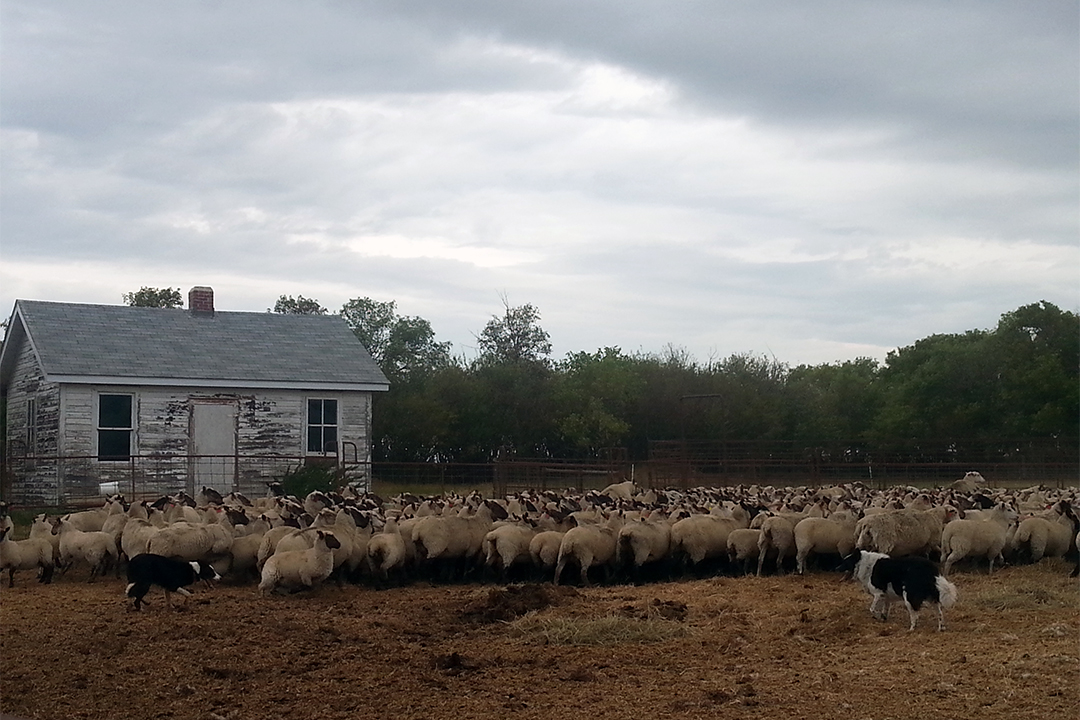
Moving forward with sheep dewormer resistance
What will sheep farmers do when the dewormers they’ve been using for years are no longer working?
By Mirjam StigterThat’s an important question now that current research indicates a trend of emerging resistance to the dewormers commonly used by Saskatchewan sheep producers.
Dr. Fabienne Uehlinger from the Western College of Veterinary Medicine (WCVM) recently began a study investigating dewormer resistance in Saskatchewan sheep flocks. She’s teaming up with Drs. John Gilleard and Michel Levy, researchers from the University of Calgary who’ve been studying sheep parasite resistance in Alberta flocks.
Although the Saskatchewan project is still in its beginning stages, early results are already telling a story.
“From the information we got last year, the trend is not [looking] good,” says Uehlinger, an assistant professor in the WCVM’s Department of Large Animal Clinical Sciences.
Early results show evidence of treatment failure – the dewormers given by producers are not killing adequate numbers of worms.
Internal worms (gastrointestinal parasites) are common in sheep, and they can cause a wide range of detrimental effects that vary depending on the number of worms present. Common clinical signs include diarrhea, poor growth and weight loss. The parasites can also cause low protein levels in the blood as well as anemia and even death.
In the past, sheep farmers were able to kill the worms by using sheep dewormers (anthelmintics). However, the worms can become resistant to the dewormers – a phenomenon that’s been documented around the world and is also happening now in Western Canada.
Uehlinger points out that there are other factors that can contribute to treatment failure. These factors include under-dosing, improper administration of the dewormer and use of an ineffective product such as one that has expired or targets parasites other than the ones predominantly present in the treated sheep.
With that knowledge in mind, her first step is establishing whether or not resistance is actually present before determining which of the dewormer products is no longer effective.
In order to determine dewormer resistance, an appropriately conducted fecal egg count needs to be performed – that’s a measure of the number of worm eggs being shed in the sheep’s feces. It provides a rough estimate of the animal’s gastrointestinal worm load.
Although fecal egg counts can readily be performed by local veterinary clinics with relatively minimal input into equipment, not all are set up to perform them. In that case, the fecal egg count may be determined at a diagnostic centre; that can be a problem if there aren’t any nearby. Timing and distance are important since the samples need to be fresh and processed quickly for accurate results. Another challenge is that conducting individual fecal egg counts in a flock of 200 sheep is not economically feasible.
Recently, an increased number of sheep producers have been requesting fecal egg count testing for their flocks prior to deworming. Current research along with this increased producer demand has now prompted conversations about providing more convenient diagnostic services for producers.
Prairie Diagnostic Services (PDS) at the WCVM is working on developing a service that would enable producers to get fecal egg counts done on pooled samples from their flocks at a reasonable price. This service would calculate the approx. average number of parasite eggs being shed in the flock at the time of collection.
That information would help producers avoid needless deworming of their animals, which contributes to faster development of parasite resistance to dewormers, and these fecal egg counts could also be used before and after deworming to assess the effectiveness of their deworming treatment.
As the research continues and as producers continue to see the significance of dewormer resistance, Uehlinger is optimistic they can move forward together to develop strategies for dealing with this problem
She points out that this study is not just important for determining whether or not resistance present. There’s also an important practical aspect to the research – it will establish lines of communication with the producers and provide a way to spread the word about the significance of this emerging dewormer resistance problem.
“I think the only way to convince the producers [about the importance of dewormer resistance]… is to show them that there is a problem as opposed to just telling them that there is one,” says Uehlinger. “And use this [data] as a basis to try and work with them to come up with more sustainable practices.”
Mirjam Stigter of Lacombe, Alta., is a third-year veterinary student who was part of the WCVM’s Undergraduate Summer Research and Leadership program in 2017. Mirjam’s story is part of a series of articles written by WCVM summer research students.
